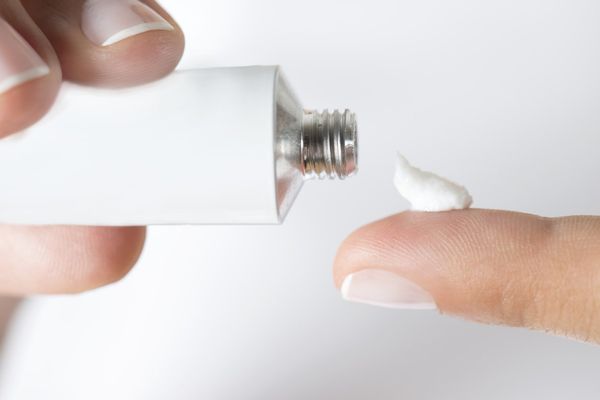Have you ever been standing somewhere, and then you’re suddenly dripping in sweat and feeling like you need to rip your clothes off … but you look around, and everyone else seems cool as a cucumber?
Yeah. Us too.
If you’re between the ages of 45 and 55, you can probably thank menopause.
The menopause transition is different for everyone but vasomotor symptoms (VMS) — the medical term for hot flashes and night sweats — are the most common menopause symptoms and can sometimes go on for years.
Although menopause is a natural part of aging, symptoms that disrupt everyday life can have a serious impact on your health. For example, night sweats may lead to insomnia and can contribute to brain fog, and VMS have been linked to cardiovascular disease and other chronic conditions, such as metabolic syndrome, Type 2 diabetes and nonalcoholic fatty liver disease.
Watch: Ways to Cope with Common Menopause Symptoms >>
Thankfully, there are treatment options and lifestyle choices that can help with symptoms associated with menopause.
We reached out to experts on the HealthyWomen Women’s Health Advisory Council for tips on how to manage menopause like a pro. Let’s see what they had to say.
Tip #1: Consider cognitive behavioral therapy
Cognitive behavioral therapy (CBT) involves changing the way you respond to negative thoughts. Barbara Dehn, R.N., NCMP, said CBT can be helpful when you’re frustrated with brain fog associated with menopause. “When you can’t find the word on the tip of your tongue, it can make you feel anxious and that can lead to — you guessed it — a hot flash. Instead, give yourself some grace and use self talk that might sound like this: ‘Right now, I am trying to remember a word. It’s normal and natural for me to need a little more time to come up with it. I’m going to use a different word with the same meaning because I know that this feeling will pass.’” Research shows that CBT can also improve mood and sleep problems in women going through menopause.
Tip #2: Make vaginal health a priority
“As estrogen levels decline in menopause, the loss of health and integrity of the vagina and vulva is unavoidable,” said Barb DePree, M.D., MSCP. “Before reaching the point of dryness that leads to pain, consider adding a vaginal moisturizer to sustain vaginal health longer. It’s hard to regain tissue health once lost.” DePree added that it’s best to start moisturizing during perimenopause — the years leading up to menopause.
Over-the-counter (OTC) lubricants can also help with any pain or discomfort during sex. “About 50 to 75% of women use lubrication for sex after 50,” Dehn said. “There are plenty of choices from oils and flavored water-based lubes that are great for oral sex, to silicone and hybrid versions.”
Tip #3: Think about using medication
“Hormone therapy can be a vital tool in the management of menopausal symptoms and significantly improving a woman’s overall quality of life,” said Sabrina Sahni, M.D., NCMP. Research shows adding estrogen through hormone therapy can reduce hot flashes, promote vaginal health and prevent bone loss, which can lead to osteoporosis.
In addition to hormone therapy, there are several types of non-hormonal medications that can help alleviate symptoms of VMS. Some of the options are specifically approved for this use, and others are medications that are used off-label to provide relief. Besure to ask your healthcare provider about the pros and cons of any medication you might take.
Tip #4: Try magnesium for better sleep
Sahni said over-the-counter supplements like magnesium glycinate may be helpful for sleep. The recommended daily allowance for magnesium is 320 mg for women ages 31–51 and 420 mg for women 51 and older. You can get magnesium through foods such as nuts, seeds and leafy greens or in supplement form.
Tip #5: Find a healthcare provider who specializes in menopause
“If you’re having symptoms or concerns, I always recommend speaking to a certified menopause provider and one that can offer an individualized and tailored approach to managing your symptoms,” Sahni said. To find one near you, check out The Menopause Society’s directory for a list of The Menopause Society Certified Practitioners (MSCPs) who specialize in menopause.
Tip #6: Maintain a healthy lifestyle
“In addition to hormone therapy, I always counsel on the importance of lifestyle, diet and exercise, as they can have an impact on menopausal symptoms,” Sahni said. “Additionally, weight loss during the perimenopause and menopause transition may be associated with fewer hot flashes as well.” One study found that postmenopausal women who added more fruit, vegetables and whole grains and reduced fat in their diets experienced weight loss and were less likely to have VMS compared to the participants who didn’t change their diet.
Tip #7: Expect the unexpected
“The only thing predictable about perimenopause is that everything is unpredictable — from heavy, elongated periods to breast tenderness and exhaustion,” Dehn said. But you don’t have to tough it out. If you’re experiencing symptoms associated with menopause, talk to your healthcare provider about treatment options and what may be best for you.
This educational resource was created with support from Astellas, a HealthyWomen Corporate Advisory Council member.
- A Conversation with Dr. Octavia Cannon About How Race Can Influence Menopause ›
- True or False: Menopause ›
- Top 10 Menopause Symptoms ›
- You're Hot. Vasomotor Symptoms Are Not. ›
- From Hot Flashes to Night Sweats, a Rundown of Vasomotor Symptoms During Menopause ›
- Menopause Symptoms Are Far from Universal - HealthyWomen ›
- Learn About Nonhormonal Hot Flash Treatment - HealthyWomen ›







